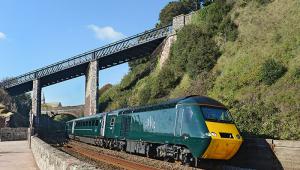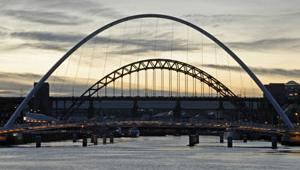Network Rail’s current five-year investment programme has been paused and partly restarted by transport secretary Patrick McLoughlin. A PAC probe found the Great Western electrification project could cost as much as £2.8bn, up from £1.6bn estimated a year ago.
In order to meet the additional cost of upgrading the route between London and the west of England and South Wales, there is a risk that other projects could be delayed.
The committee said uncertainty remained over electrification projects on both the TransPennine route and the Midland Main Line, both of which are meant to form part of Network Rail’s programme from 2014-2019.
It called on ministers to publish a revised and re-costed programme of electrification improvements, including the rationale for June’s decision to prioritise Great Western over these other schemes.
Chair Meg Hillier said Network Rail had “lost its grip on managing large infrastructure projects”, leading to both delays and higher costs.
“The potential near doubling in cost of the electrification of the Great Western Line is a symptom of seriously flawed control and planning. Another is the continuing uncertainty over electrification of both the TransPennine route and the Midland mainline,” she added.
“The government has identified rail infrastructure as a vital part of its economic plans, for example in establishing what it describes as a Northern Powerhouse. It is alarming that, in planning work intended to support these plans, its judgement should be so flawed.”
The report found that the work planned for the five year period could never have been delivered within the agreed £38.3bn budget and timeframe but Network Rail, the Department for Transport and the Office of Rail and Road regulator all approved the programme.
Such funding cycles for the railway, known as control periods, may not be suitable for these major investment projects if the scope and costs were uncertain when funding is agreed, MPs concluded.
The DfT should develop a new regime for financing major enhancement projects that would allow them to be funded and managed outside these cycles.
The PAC also noted that Network Rail’s reclassification as a public body has reduced its flexibility to borrow to cover cost increases. Before reclassification in 2014, the state-owned firm covered higher costs through borrowing from markets, but it can now only borrow from government, with a loan cap of £30.3bn. A much stronger focus on accurate project costing at the planning stage and controlling costs is therefore required.
Responding to the report, a DfT spokesman said: “We are proud to have a hugely ambitious investment programme, but agree that lessons should be learned on all sides. We are committed to seeing the £38bn programme through and delivering the railway passengers deserve.
“That’s why the secretary of state asked Dame Colette Bowe to look at the lessons learned and make recommendations on what can be done better in future, and why Sir Peter Hendy is developing proposals to get the rail upgrade programme back on track and ensure it is both affordable and deliverable.”
Both reports will be published later this year.












